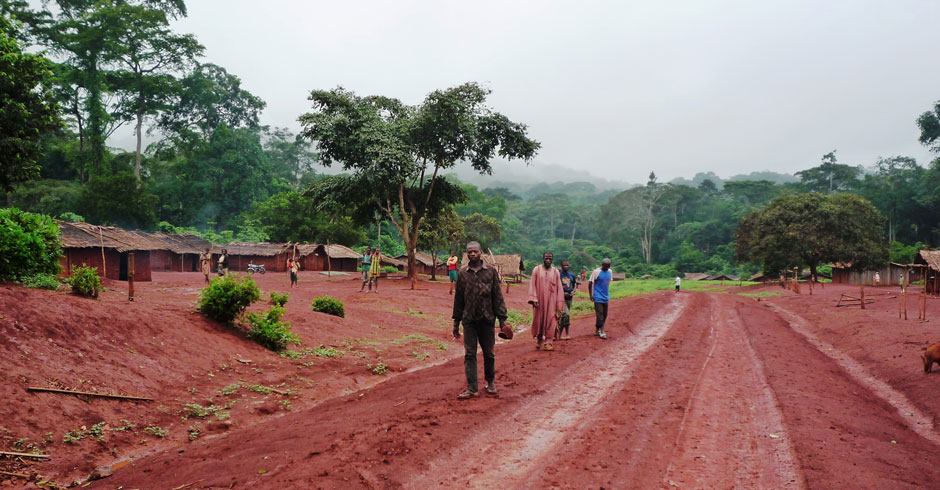DRC:
Stopping the abuse of Artisanal Logging Permits in the Democratic Republic of Congo (DRC)

“In this area, if a Congolese person has an artisanal logging permit, there is usually a Chinese company hiding behind him” says Emmanuel Belashayi, who works for Réseau Ressources Naturelles (RRN, The Natural Resources Network) in Bateke Plateau, on the east bank of the Congo River.
There’s supposed to be a freeze on new logging concessions in this remote part of DRC, but here in Bandundu province you wouldn’t have known it to look at the number of foreign logging companies using heavy machinery to harvest great quantities of timber.
How had they done it? By targeting annual artisanal logging permits intended for use by communities for small scale logging, in order to get round the country’s laws and carry on business as usual, says Emmanuel. The government has granted hundreds of these permits; “These companies pay for a permit, and then they use it to just log anywhere. Usually the price is very low, and the community receives nothing.”
The problem is that nobody is really watching in these remote parts of the country, so companies can do as they please and laws drawn up in faraway Kinshasa are not enforced. This is where Emmanuel comes in. Working for RRN, financed by the Making the Forest Sector Transparent programme, he criss-crosses the vast territory, often by bicycle or canoe, to inform communities about DRC’s forestry laws so that they can tell whether the loggers are illegal.
In some cases, they win. In August 2012 a meeting on illegal logging organised by Emmanuel in the town of Mushie led to a community march, demanding that an illegal logger called YFIDE that had damaged a nearby road be asked to pay reparations to the community. The provincial authorities ordered the company to pay US$4 per cubic metre of timber cut, as well as issuing a hefty fine.
There has definitely been a reduction in illegal logging, but it hasn’t been stamped out completely,” says Emmanuel. “We are setting up control points to survey all wood leaving the province, and we will keep on denouncing illegal loggers.”
But it became clear that many of the problems in Bateke were driven by officials in Kinshasa, who were handing out illegal permits which had been signed by a previous Environment Minister. To bring the problem to wider attention, Emmanuel helped Global Witness to travel to the area to document what was going on.
The resulting report, published on 25 October 2012 detailed the scale of the problem, particularly around the hotspot town of Ngambomi. This put the abuse of illegal artisanal logging permits on the agenda of the recently appointed Environment Minister, who was keen to mark his administration with early proof of reforms. Two days later the Minister called a press conference at which he welcomed the Global Witness report, stating “we are aware that our administration has become a sanctuary for fraud, but we are working to address this”. The following week he paid a visit to Ngambomi.
Two ministerial orders soon followed – one clarifying that artisanal logging permits are not to be signed by the national Environment Minister but by provincial governors, and another suspending artisanal or timber purchasing permits held by some of the worst offending companies. The governor of Bandundu – the province where RRN’s Emmanuel lives – also acted, instructing local chiefs not to enter into agreements with illegal loggers, and ordering the seizure of all artisanal timber.
These are important changes, which would not have happened without people like Emmanuel ensuring that communities know when the law is being broken. Otherwise in remote areas with weak laws, it is all too easy for predatory companies to pay lip service to them.
“There has definitely been a reduction in illegal logging, but it hasn’t been stamped out completely,” says Emmanuel. “We are setting up control points to survey all wood leaving the province, and we will keep on denouncing illegal loggers.”
